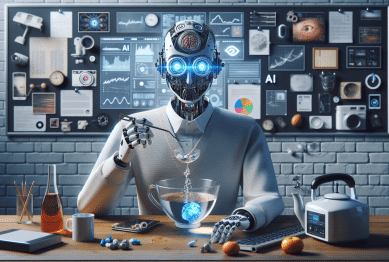In the rapidly evolving professional landscape of 2025, where automation, AI, and shifting workplace dynamics dominate, continuous learning is essential for career advancement. Staying competitive requires professionals to regularly update their skills, adapt to new technologies, and embrace emerging industry trends. Continuous learning not only enhances expertise but also fosters adaptability, resilience, and leadership, making it a cornerstone of long-term career success. This article explores why continuous learning is critical for career advancement and provides practical steps to integrate it into your professional life, supported by recent insights.

Why Continuous Learning Matters in 2025
Continuous learning—the ongoing pursuit of new knowledge, skills, and competencies—ensures professionals remain relevant in a fast-changing job market. In 2025, with AI transforming industries and remote work reshaping collaboration, those who prioritize learning are better positioned for promotions, new opportunities, and leadership roles. Lifelong learning bridges skill gaps, enhances employability, and builds confidence to navigate economic and technological shifts.
Key Benefits of Continuous Learning for Career Advancement
Continuous learning offers significant advantages that drive professional growth:
1. Enhances Employability
Regularly updating skills keeps you competitive in a dynamic job market.
- How It Works: Learning in-demand skills, like AI tools or data analysis, aligns your expertise with employer needs.
- Real-Life Impact: A marketer learns AI-driven analytics, securing a promotion to a data-focused role.
- Tip: Identify skills trending in your industry and prioritize learning them.
2. Fosters Adaptability
Continuous learning equips you to navigate technological and industry changes with ease.
- How It Works: Exposure to new tools and trends builds flexibility, enabling quick adaptation to workplace shifts.
- Real-Life Impact: A project manager masters remote collaboration tools, leading hybrid teams effectively.
- Tip: Stay updated on industry trends through platforms like X or industry newsletters.
3. Boosts Leadership Potential
Learning leadership and soft skills positions you for management roles.
- How It Works: Courses in communication or strategic thinking enhance your ability to lead teams and drive results.
- Real-Life Impact: An engineer takes leadership training, earning a team lead role by demonstrating emotional intelligence.
- Tip: Focus on skills like conflict resolution or decision-making to prepare for leadership.
4. Increases Confidence and Resilience
Acquiring new knowledge builds confidence to tackle challenges and recover from setbacks.
- How It Works: Mastery of new skills fosters self-assurance, reducing fear of failure.
- Real-Life Impact: A freelancer learns digital marketing, confidently pitching to higher-profile clients.
- Tip: Start with small learning goals to build momentum and confidence.
Practical Steps to Embrace Continuous Learning
Here’s how to integrate continuous learning into your career with small, consistent steps:
1. Identify Relevant Skills
Pinpoint skills that align with your career goals and industry demands.
- How to Do It: Research job postings on LinkedIn or Indeed to identify in-demand skills, like coding, AI, or project management.
- Why It Helps: Targeted learning ensures your efforts directly support career advancement.
- Tip: Follow industry leaders on X to stay informed about emerging skills.
2. Use Online Learning Platforms
Leverage accessible platforms to acquire new skills at your own pace.
- How to Do It: Enroll in courses on Coursera, Udemy, or LinkedIn Learning, focusing on one skill at a time, like data visualization or leadership.
- Why It Helps: Online platforms offer flexible, affordable learning tailored to your schedule.
- Tip: Choose courses with practical projects to apply skills immediately.
3. Set a Learning Schedule
Dedicate regular time to learning to build consistent habits.
- How to Do It: Schedule 15–30 minutes daily or weekly for learning, such as watching a course video or reading an industry article.
- Why It Helps: Consistency ensures steady skill development without overwhelming your routine.
- Tip: Use tools like Notion to track learning progress and set reminders.
4. Apply Skills in Real-World Projects
Put new knowledge into practice to reinforce learning and showcase expertise.
- How to Do It: Take on a side project, like building a website or analyzing data, to apply skills learned in a course.
- Why It Helps: Practical application solidifies knowledge and enhances your portfolio.
- Tip: Share project outcomes on LinkedIn to demonstrate your skills to employers.
5. Network with Lifelong Learners
Connect with professionals who prioritize learning to exchange knowledge and opportunities.
- How to Do It: Join industry groups on LinkedIn or attend virtual webinars to meet peers and mentors.
- Why It Helps: Networking exposes you to new ideas and career opportunities.
- Tip: Engage in discussions on X or industry forums to build connections.
6. Review Learning Progress Monthly
Spend 15–20 minutes monthly assessing how your learning efforts contribute to career goals.
- How to Do It: Reflect on new skills acquired, projects completed, and their impact on your work.
- Why It Helps: Regular reviews keep learning aligned with career objectives and identify gaps.
- Tip: Use a journal or app like Day One to log progress and set new learning goals.
Sample Routine for Continuous Learning
Here’s a routine to integrate learning into your professional life:
- Daily:
- Morning (10 minutes): Watch a short course video or read an industry article.
- Evening (5 minutes): Reflect on one new concept learned and how to apply it.
- Weekly:
- Sunday (20 minutes): Plan your learning schedule and enroll in a new course or module.
- Monthly:
- First Sunday (20 minutes): Review skills gained and update your LinkedIn profile or resume with new competencies.
- Quarterly:
- First Sunday (30 minutes): Assess how learning has advanced your career and explore new skills to target.
Overcoming Common Challenges in Continuous Learning
- Challenge: Lack of time for learning.
Solution: Start with microlearning, like 10-minute videos, to fit into a busy schedule. - Challenge: Feeling overwhelmed by options.
Solution: Focus on one skill at a time that directly supports your career goals. - Challenge: Difficulty retaining knowledge.
Solution: Apply skills immediately through projects or teach others to reinforce learning.
Tools to Support Continuous Learning
- Learning Platforms: Coursera, Udemy, or LinkedIn Learning for online courses.
- Productivity Tools: Notion or Trello for organizing learning schedules.
- Networking Platforms: LinkedIn or X for connecting with industry professionals.
- Skill Application: Canva for creative projects or GitHub for coding practice.
- Reflection Apps: Day One or Evernote for tracking learning progress.
The Bigger Picture: Continuous Learning in 2025
In 2025, continuous learning is a non-negotiable for career advancement as industries evolve with AI, automation, and global competition. Professionals who embrace lifelong learning stay adaptable, gain leadership opportunities, and thrive in a dynamic job market. By prioritizing skill development and leveraging digital platforms, you can future-proof your career and seize new possibilities.
Conclusion: Learn Continuously for Career Success
Continuous learning is vital for career advancement, enhancing employability, adaptability, and leadership potential. Identify relevant skills, use online platforms, and apply knowledge through projects, reviewing progress monthly to stay on track. In 2025’s fast-paced world, lifelong learning is your key to professional success. Start today, and unlock your career potential.
References:
World Economic Forum. (2025). The Future of Work: Skills for 2025. https://www.weforum.org/reports/future-of-work-skills-2025
Forbes. (2025). Why Continuous Learning is Key to Career Success. https://www.forbes.com/sites/forbesbusinesscouncil/2025/02/25/why-continuous-learning-key-career-success/
LinkedIn Learning. (2025). The Power of Lifelong Learning for Professionals. https://www.linkedin.com/learning/power-lifelong-learning-professionals
Harvard Business Review. (2025). Continuous Learning in a Changing Workplace. https://hbr.org/2025/01/continuous-learning-changing-workplace
The Muse. (2025). How to Stay Competitive with Continuous Learning. https://www.themuse.com/advice/stay-competitive-continuous-learning









